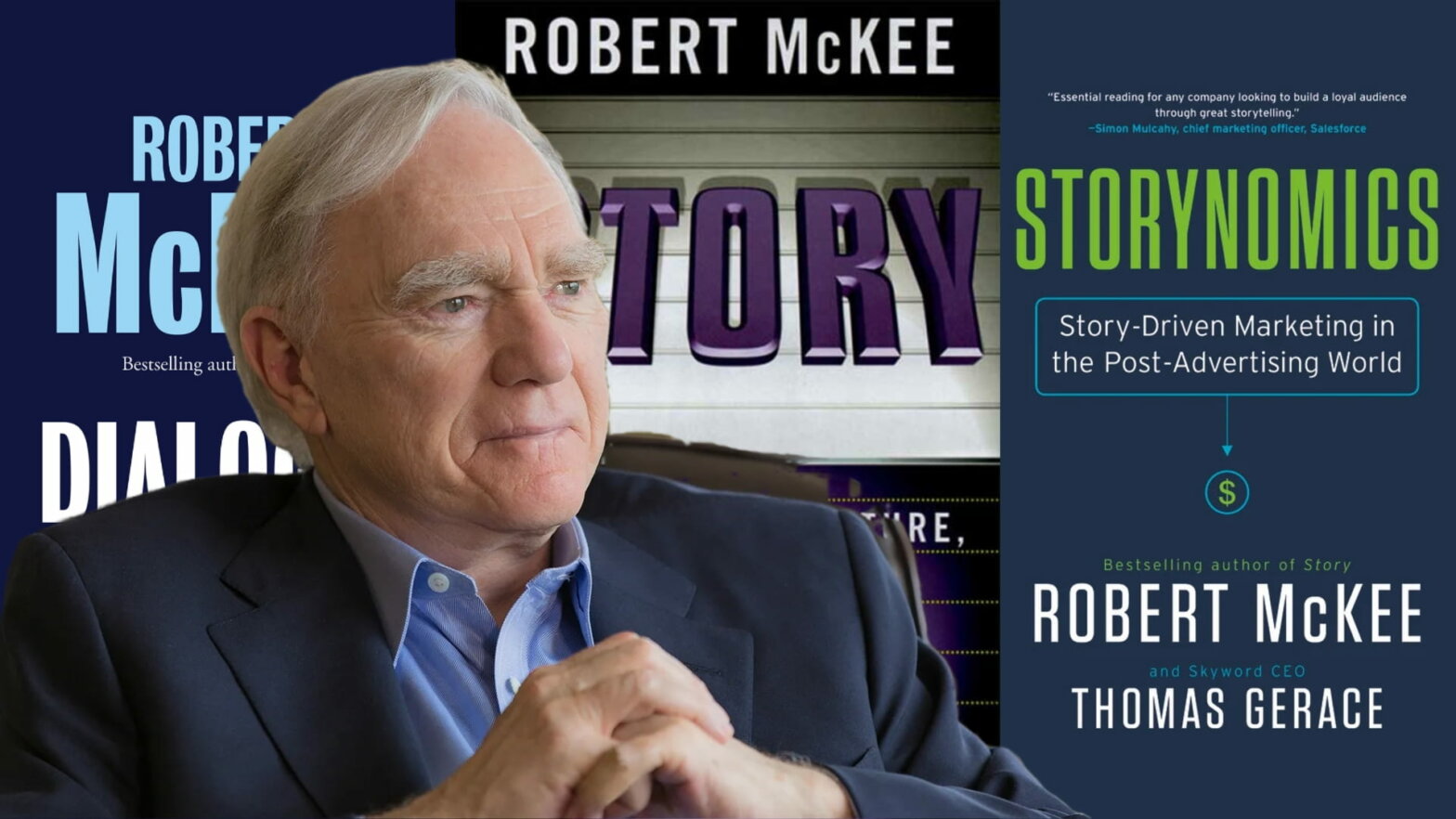Robert McKee has had an enormous influence on screenwriters all over the globe – but who is Robert McKee and why is he so important? We’re going to explore McKee’s career to better understand his impact on the world of screenwriting. By the end, you’ll know all about Robert McKee’s Story, seminars, and more.
Robert McKee Screenwriting
Robert McKee’s early years
Robert McKee graduated from the University of Michigan with a Bachelor’s degree in English Literature; and later, a Master’s degree in Theater Arts. McKee spent the early years of his professional career directing and acting in stage plays. His breakthrough in Hollywood didn’t come until the late 1970s with the selling and optioning of scripts to major motion picture studios.
But McKee’s greatest claim to fame has come from his story seminars; we’ll get to those in a bit, but let’s formally explain McKee’s work.
ROBERT MCKEE DEFINITION
Who is Robert McKee?
Robert McKee is a screenwriter, author, and lecturer who’s influenced thousands of screenwriters through his “story seminars.” In recent years, McKee has consulted on “business storytelling” seminars for some of the world’s most iconic brands.
Robert McKee Books:
- Story (1997)
- Dialogue (2016)
- Storynomics (2018)
- Character (2021)
Robert McKee Story Structure
McKee’s seminars
McKee found success (and renown) in the early 1980s when he was awarded a Fulbright Scholarship. Shortly after, he started working for the University of Southern California as a faculty member in the School of Cinematic Arts, and as a lecturer for the Sherwood Oaks Experimental College.
It was the latter institution where McKee found a portal to his future profession: seminar leader. In talking to Screencraft, McKee said:
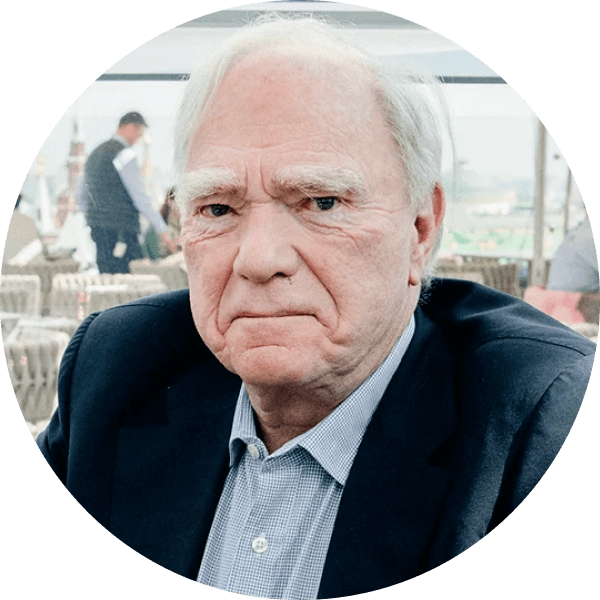
“I got a call asking if I’d do it again. I went back a second time and what had been 20 people was now 60 people. It was now more of a lecture than a workshop because of that. And then when I was asked back for a third time, it was 250 people in an auditorium. Then I was invited by Women in Film to bring it to New York. I told them I couldn’t come to New York for eight weeks, so they asked if I could possibly do it for a weekend. So I went there for a Friday, Saturday, and Sunday. It was a big success. Then somebody in Europe heard about it. And it just sort of grew like that. Word of mouth. And then Shorewood Oaks went out of business. I wanted to keep it going because it was fun, so I put a tiny ad in the L.A. Times. The seminar was called Story Structure in those days. And then the phone just wouldn’t stop ringing. And from there, I had to rent space and it then became a business.”
— Robert McKee
Over the following years, McKee traveled the world delivering his Story Structure seminar to the masses. Quincy Jones, Diane Keaton, Gloria Steinem, Julia Roberts, John Cleese and David Bowie are cited as just a few of the celebrities who’d attended.
Here’s a video primer to the vibe of McKee’s story seminars:
Robert McKee’s Story Seminar
McKee’s seminars are intense and some would argue they’re too didactic. There’s no doubt McKee likes to play the role of maestro — in fact, in an interview with The New Yorker, he said:


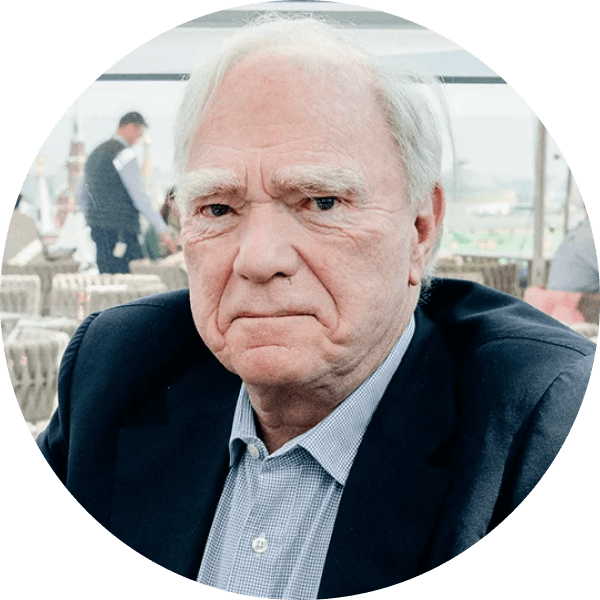
“See, what I do is very seductive. On Sunday night, I’m going to get a standing ovation. I am an old actor and this is thirty hours of performance to a captive audience. It’s very satisfying.”
— Robert McKee
McKee is honest with his reasons for performing seminars, but he’s also indulgent. To be truthful, his style of education isn’t for me — but there’s a reason his seminars are popular: it’s difficult to find in-person classes or workshops that are worth the time and money.
College screenwriting courses are great for learning from scholars — but they’re unfairly expensive. Online screenwriting classes are more affordable but maybe they don't include the accountability that comes with in-person instruction. Workshops are good if they involve a good group — but a good group is often hard to find. Don’t get me wrong: it’s not impossible, it’s just more challenging.
Robert McKee Books
Robert McKee’s Story
In 1997, McKee released a collection of musings on seminar topics titled
Story: Substance, Structure, Style and the Principles of Screenwriting.
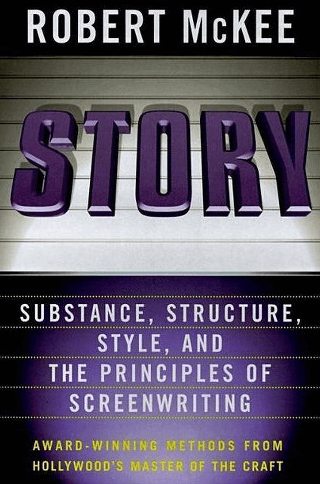
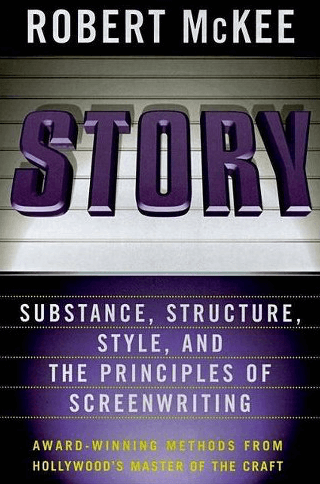
Story Robert McKee • Robert McKee’s Story Book
Over the years, Story has become regarded as one of the best screenwriting books in the world. Here’s McKee explaining the tenets behind Story in an interview with London Real.
Robert McKee – Story – London Real
It’s noteworthy that McKee says his favorite screenwriter is Ingmar Bergman. Why? Because Bergman rejected the notion that stories needed to stick to certain structures. Joseph Campbell’s Hero’s Journey and Blake Snyder’s Save the Cat! Beat Sheet outline how to write screenplays in a standardized way; McKee’s Story doesn’t.
Bergman and McKee’s philosophy on screenwriting share a lot of similarities. By studying Bergman, we can learn a lot about how McKee views stories.
Here’s a quick video of Bergman explaining his screenwriting process in detail.
Robert McKee’s Favorite Screenwriter: Ingmar Bergman
If we think of Bergman’s most famous works: Seventh Seal, Wild Strawberries, and Persona, we see a trend of loosely connected memories. There isn’t a distinct narrative structure in any of these movies – but there is an incredible story with big ideas and powerful performances.
Charlie Kaufman Robert McKee
Robert McKee in Adaptation
The 2002 movie Adaptation – written by Charlie Kaufmann and directed by Spike Jonze – lampoons and reveres Robert McKee in equal measure.
Adaptation follows the story of a fictionalized version of Charlie Kaufmann as he attempts to adapt Susan Orlean’s The Orchid Thief into a screenplay. In the movie, Kaufmann develops writer’s block and attends McKee’s seminar to break out of it.
Robert McKee agreed to let the studio use his likeness on two conditions: the first is that he would be given a “redeeming scene.” The second is that he would be allowed to consult on changing the third act.
The first “McKee scene” in Adaptation takes place when Charlie goes to the seminar and is berated for asking a stupid question. McKee is exquisitely played by the inimitable Brian Cox.
Character Robert McKee • Brian Cox as Robert McKee in Adaptation
The second “McKee scene” takes place after the seminar when Charlie goes to a bar with Robert to talk about his screenplay. McKee dispenses with some sage screenwriting advice, especially to avoid the Deus ex Machina. But in perfect Kaufman-esque irony, that's exactly what happens later in the film.
Character Robert McKee • Brian Cox as Robert McKee in Adaptation Scene Two
The second scene paints McKee in a much more flattering light than the first – but much like the man himself (or any character for that matter), complexity is key. It’s impossible to talk about McKee without talking about Adaptation, which is why I’m sure he’s thankful to Brian Cox delivered a great performance.
UP NEXT
Who Are the Coen Brothers?
The Coen Brothers are two of the most influential filmmakers of the past 30 years – but who are they and what have they made? In our next article, we break down the Coen Brothers’ careers by looking at some of their most seminal films. By the end, you’ll know who the Coen Brothers are and what makes their films so unique.
Up Next: Coen Brothers Bios & Works →
Showcase your vision with elegant shot lists and storyboards.
Create robust and customizable shot lists. Upload images to make storyboards and slideshows.
